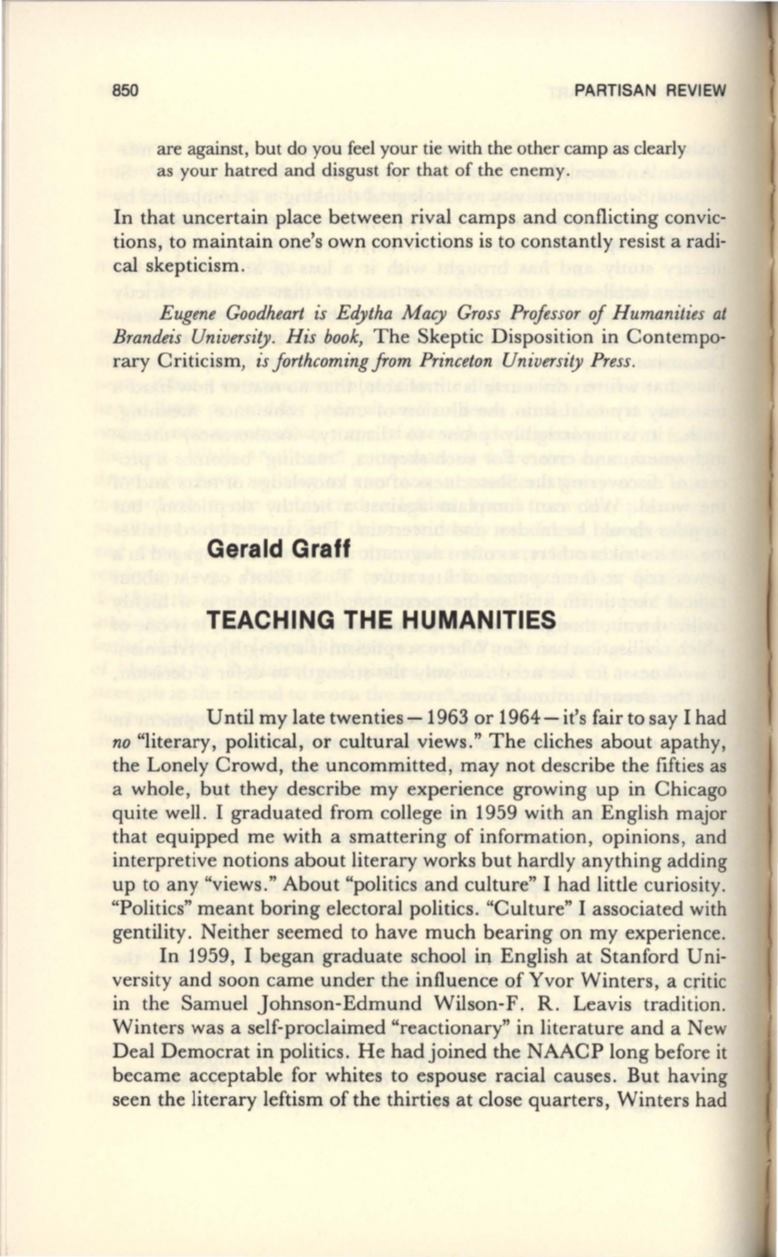
850
PARTISAN REVIEW
are against, but do you feel your tie with the other camp as clearly
as your hatred and disgust for that of the enemy.
In that uncertain place between rival camps and conflicting convic–
tions, to maintain one's own convictions is to constantly resist a radi–
cal skepticism.
Eugene Goodheart is Edytha Macy Gross Professor of Humanities at
Brandeis University. His book,
The Skeptic Disposition in Contempo–
rary Criticism,
is forthcoming from Princeton University Press.
Gerald Graff
TEACHING THE HUMANITIES
Until my late twenties- 1963 or 1964- it's fair to say I had
no
"literary, political, or cultural views." The cliches about apathy,
the Lonely Crowd, the uncommitted, may not describe the fifties as
a whole, but they describe my experience growing up in Chicago
quite well. I graduated from college in 1959 with an English major
that equipped me with a smattering of information, opinions, and
interpretive notions about literary works but hardly anything adding
up to any "views." About "politics and culture" I had little curiosity.
"Politics" meant boring electoral politics. "Culture" I associated with
gentility. Neither seemed to have much bearing on my experience.
In 1959, I began graduate school in English at Stanford Uni–
versity and soon came under the influence of Yvor Winters, a critic
in the Samuel Johnson-Edmund Wilson-F. R. Leavis tradition.
Winters was a self-proclaimed "reactionary" in literature and a New
Deal Democrat in politics. He had joined the NAACP long before it
became acceptable for whites to espouse racial causes. But having
seen the literary leftism of the thirtie!l at close quarters, Winters had


